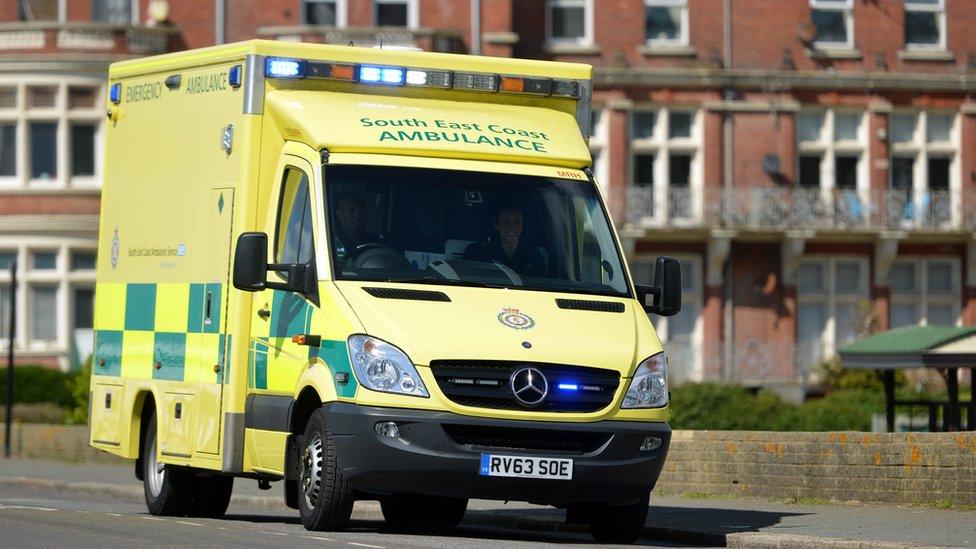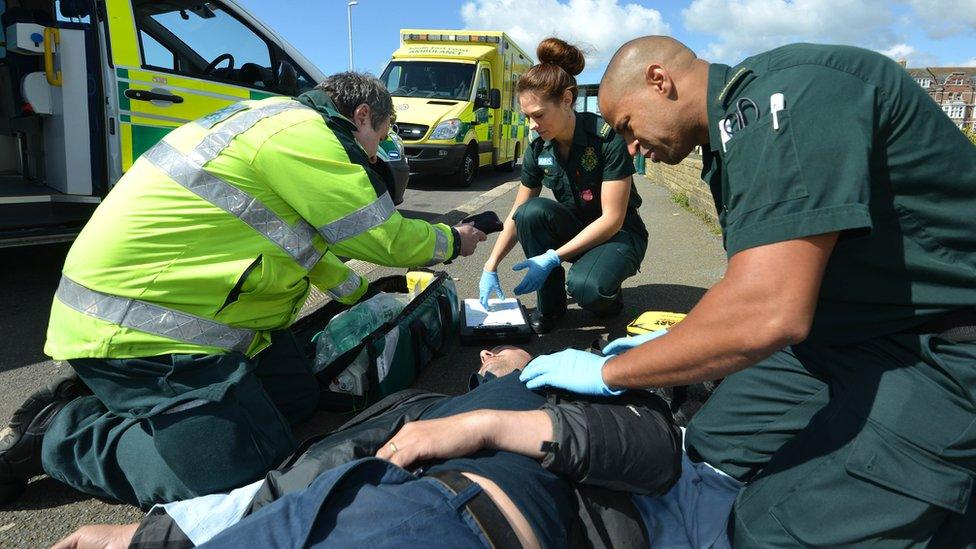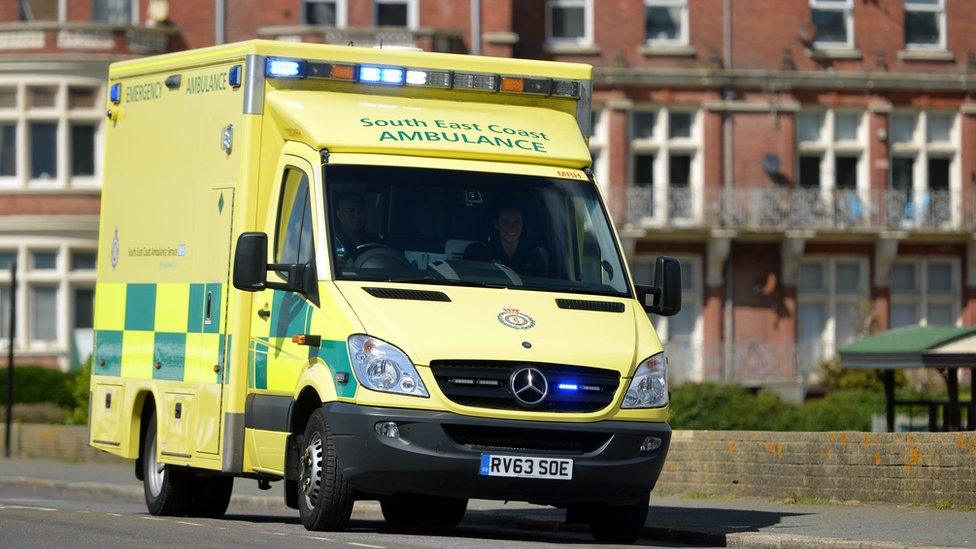111 scandal: CQC issues Secamb with warning notice
- Published

Secamb has been told it must adequately manage NHS 111 calls in a timely manner
A scandal-hit NHS trust which came under intense scrutiny over emergency call-outs has been issued with a warning notice by the health regulator.
South East Coast Ambulance Service NHS Foundation Trust (Secamb) has been told it must adequately manage NHS 111 calls in a timely manner.
It was also told by the Care Quality Commission (CQC) to make improvements to several other systems and processes.
The trust said efforts to address the issues were already under way.
It follows an inspection by the CQC at the beginning of May.
At the time it was announced chief executive of the trust, Paul Sutton, had resigned after it emerged Secamb had run a secret and controversial pilot during which up to 20,000 patients had their ambulances delayed.
A review, external by Secamb said failings in how the trust was run led to the "high risk" project, which did not have approval from board members, the 111 NHS helpline or commissioners.

The ambulance trust said it was aiming to restore public confidence and faith in the service
The trust has until September to address the immediate concerns highlighted by the CQC, including problems answering NHS 111 calls and the availability of kit, before a full report will be published later in the year.
Its action plan includes:
Improve operational performance including increasing the number of staff deployed to provide patient care
Implement a new asset register for clinical equipment
Ensure medicines practice are understood and operated appropriately by staff
Look to establish a new patient safety and quality director role to bring together all aspects of patient safety, safeguarding and patient experience
Increase staff recruitment in NHS 111 with the aim of performing against a new improvement trajectory

Analysis: BBC South East health correspondent Mark Norman
This warning notice is piling the pressure on the ambulance service.
A full inspection in May highlighted a range of issues, and this notice makes it clear some of those issues need sorting immediately.
Problems answering the NHS 111 service are perhaps the most worrying for inspectors.
Secamb is already being investigated after it dodged national response targets to gain more time to assess some seriously ill patients.
In a pilot project during the winter of 2014/15 the trust delayed sending help for certain 111 calls and transferred them to the 999 system, thus gaining an additional 10 minutes to respond.
Here we are a year-and-a-half on and the NHS 111 system is still a major cause of concern for the CQC.
Add to that issues with kit, medicines, staffing, a temporary chief executive, a temporary chairman and a huge demand on their services from us - the public - and this is an ambulance service struggling to cope.

Acting chief executive of Secamb, Geraint Davies, said the trust was "sorry for not providing the service that the communities we serve should expect and deserve".
He said: "Along with the rest of the trust's executive team, our priority now is to focus on addressing the issues which the CQC has highlighted.
"We know that there is a lot that the trust needs to do to improve compliance with a number of systems and processes to ensure the safety of our patients.
"My aim is to restore public confidence and faith in our service."
- Published31 May 2016

- Published29 March 2016

- Published15 March 2016

- Published14 March 2016

- Published1 March 2016

- Published5 November 2015

- Published4 November 2015

- Published3 November 2015

- Published30 October 2015
